Automation Age - Maximize Advertising Performance Google, Smart Bid Do You Know and Set It Right?
Watch the video version in wiFi.
Listen to the audio version click here.
With the rapid development of society, the automation era has also been quickly integrated into our lives, in addition to our daily exposure to automation products, and our interests are most relevant to Google promotion is actually becoming more and more intelligent, the frequency of manual operation has slowly decreased, has not entered the intelligent customer in the promotion process will feedback on the bid question: "how much each keyword should bid to achieve good results, do not know how much to bid the amount of the industry is high or low" Thus, in order to allow the vast number of foreign trade to promote Google to get compared to the number of inquiries and return on investment over the same period, today I will share: see how we use smart we maximize the efficiency of Google advertising.
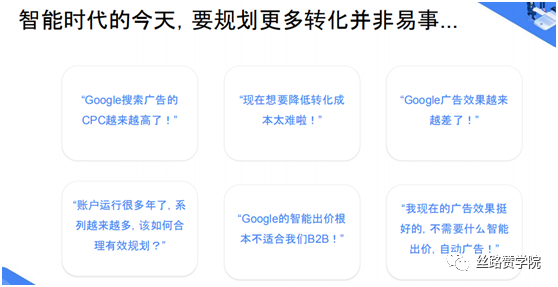
I'm talking about intelligence here that refers to our secret "smart bid", which I shared with you today around smart bids, with three main questions:
Part 1: How to use smart bidding to maximize the overall advertising performance;
Part II: Make sure you have the right smart bidding strategy set;
Part III: Solve problems in the process of using smart bids.
First, how to use smart bidding to maximize the overall advertising performance.
1, understand the role of smart bidding.
Just a preliminary understanding of smart bid, that smart bid in the end his role or significance? We have found through some previous data, 85% of the market leaders believe that if we can predict the willingness of consumers to spend, we will be very good to ensure the effectiveness of our performance, or the effect of network investment, then if you want to make the bid to reach the level of our master, or reach a certain state, first of all, according to the network user-specific these intentions and signals, or his behavior characteristics to combine to adjust the bid.
Have done the account or contact with Google products for a long time small partners, in fact, we will find that we are using artificial bids at the beginning, artificial bidding compared to smart bid has one of the biggest difference is that the artificial bid can not be based on each bid to adjust the size of this bid, but smart bid can help us assess the possibility of each bid, to help us automatically to achieve real-time bidding. And if you want to try to take these all these factors into account to do adjustment, in fact, is a very time-consuming thing and action, if the focus on more influential strategy development, can be mechanical or more efficient work to the machine to do, know that Google AI technology and GA learning technology is very advanced and perfect.
The goal of Google Smart Bid is to set a real-time bid for each bid, which is truly targeted and adjusted in real time for every one of every one's bid, so using Smart Bid can benefit from machine learning or automation technology.
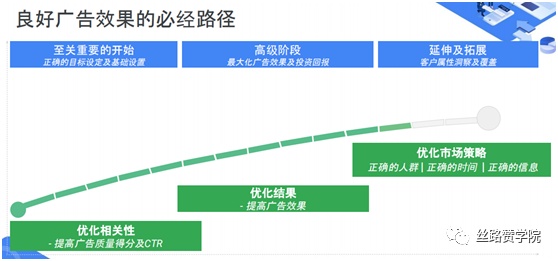
2. How can I get more customers within a specified budget?
Second, it is within the specified budget to get more customers, help us improve the number of clicks, or ultimately improve our conversion rate, we found that advertisers for this display ads use the "target ad ROI" bid after its conversion rate can be increased by an average of 30%, which is an average statistic. In response to the new demands that are emerging in the market, and the characteristics of our users, the use of devices, or the network environment, we are constantly working on algorithms to see which signal combinations are most likely to be transformed and added to the bid model to help you calculate a more comprehensive and scientific bid. Below is a list of some of the signals that smart bids will learn and reference.
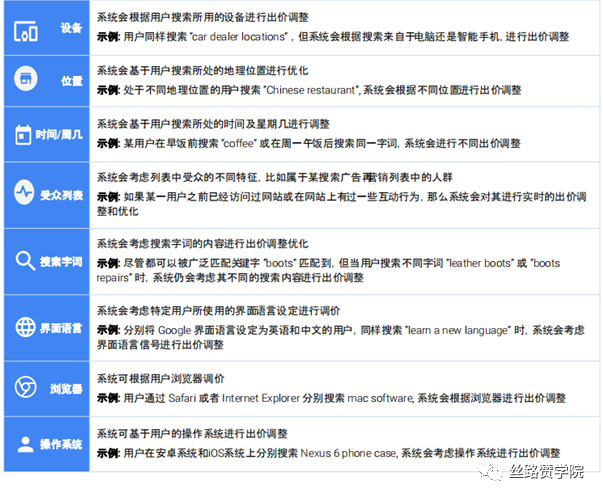
From the intelligent bid new products and release of the course of the macro point of view, he is no longer an algorithm, he has been an indispensable function in marketing, more and more perfect, and then more and more to achieve the real automation intelligence.
Smart bids are sub-artificial and automatic bids in large categories. Automatic bidding also features intelligent bid strategies and combined bid strategies that meet our different marketing needs at different stages.
1) If we're just starting out with Google Ads, we can use the automatic bid "Get as many clicks as possible" that allows us to get the most data in the shortest possible time to make the next phase of the adjustment.
2) Through the accumulated data we understand which locations are better, which ideas are better, such as a few key words to bring more traffic, that should be more input; This bidding strategy gives you 100 percent control and attracts high-quality traffic. Turn it into a manual bid, allowing you to spend every penny on the cutting edge.
3) When our account monthly conversion data reaches 30 times, we can use the smart bid strategy, which is my focus on sharing the bid strategy.
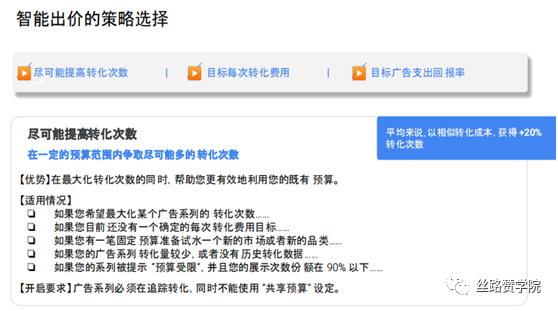
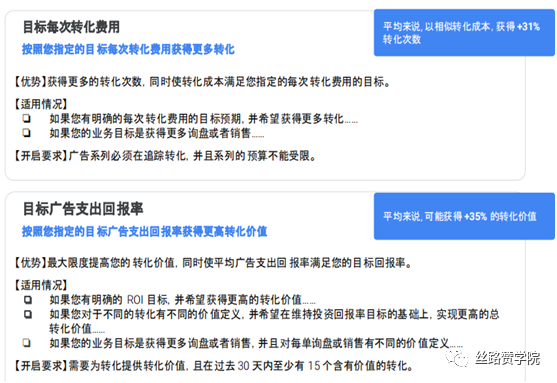
In practice, we often have a question: My business goals are really about conversion, but which smart bidding strategy should I choose?The following decision flowchart can help you quickly find the best way to bid!
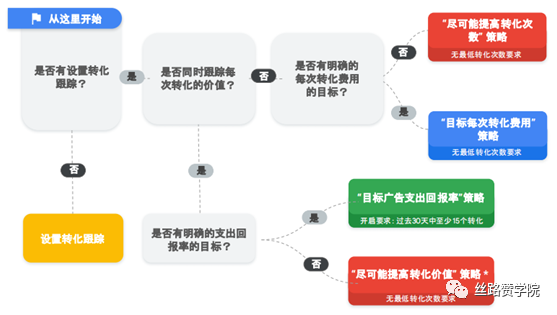
Tips and TricksIf you don't target your business for the time being with conversion and conversion value, you can't set up conversion tracking. Google Ads gives you a variety of other automated bidding methods that meet your goals, so you can still take advantage of advanced machine learning technology to make real-time automated bid adjustments for you through Google Ads. Like what:
If your business goal is to get more exposure, or even want your ads to show as much gold on the front page as possible, you can choose the "Target Impressionshare share" automated bidding strategy;
If you want to get more site traffic through ad serving, you can choose an automatic bid strategy called "Get as many clicks as possible" that will help you better leverage your existing budget and get as many ad clicks as possible to bring more people to your site. Ideal for customers who want more traffic early on.
So the premise of the correct use of smart bid is to set accurate conversion tracking, conversion tracking is our correct use of smart bid a foundation, how to set up the right? This gives us a list, you can check yourself.
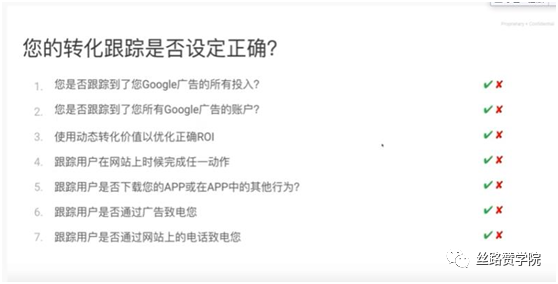
The first point is to ensure that the total advertising investment is tracked;The second point is to ensure that all account data is collected and tracked;The.Three is to ensure the use of dynamic conversion value, is the use of target ROI bidding method is particularly important point;The fourth is that we are tracking all the user's actions on the site, or the main or key action, is not tracked.Before there are some e-commerce customers, he in addition to tracking payment to complete this conversion, but also to see the purchase or fill-in card similar to such a step, no matter which step, first have to confirm the tracking target what, tracking the goal is what, and then to implement the final every step of the action tracking;The fifth point is if it is the app download, whether to track the user's download behavior and other behavior in the app;The sixth is to track whether users call through ads, such as clicking on a call, can be tracked by phone calls to the corresponding conversion data, and the seventh is whether to call through the phone on the site.This is all seven points to consider when setting conversion tracking, and making sure these tracking goals are set correctly is a prerequisite for using our smart bids.
After talking about how conversion tracking is set up, then share a summary of the problems that arise when using smart bids:
Second, FAQs - learning period.
1. For newly opened campaigns, where there is no historical data, can I use smart bids?
New campaigns can also benefit from smart bidding strategies! Starting in 2019, smart bidding has allowed many strategies to start cold on the start of the series. For example, there is no minimum conversion requirement for "Maximize conversions" and "Target Cost-per-conversion" bids.
Note: If you use Target Ad Spend Return, you'll need to accumulate at least 15 valuable conversions over the last 30 days before you can start.
2. Smart bidding relies on machine learning, can I make changes to the series once it's turned on?
Smart bidding does rely on machine learning, so during the initial learning period when the new strategy was first enabled, it is not recommended that you make significant changes to your campaign or the bid strategy itself. At other times, changes to your campaign are perfect, depending on your business needs, but it is recommended that you make changes on a small scale. For example, if you want to raise a well-performing campaign budget from $1000 to $2,000, don't go up one at a time, but do it step by step, with a daily increase of 10% to 20% and be better on a daily basis.
You can also refer to the following image as an example of a CPA adjustment.

Using a "target-to-convert fee" bid, which was initially set at $30, and after machine learning ended the stabilization period, the customer wanted to lower the CPA target to $18 due to business changes, so he adopted a six-week, short-term multiple plan, with a 10% reduction per week. The result was a new target of $18 after five adjustments, and smart bids were very flexible in learning about these small changes, withnobstase fluctuations in traffic due to changes in goal setting.
3. Can smart bidding strategies be adapted to large changes in traffic and conversion rates during the sales season or on big days?
Smart bids can also help your business grow during the sales season or on big days.During the seasonal sales season, the following changes can usually be expected:Increased traffic (surge in searches for popular products), increased conversions or conversion rates (consumers are more likely to be affected by high season or holiday promotions), and increased competition (peers are taking advantage of sales opportunities during peak sales season or holiday season).
In case 1, if you expect traffic to visit your site to increase significantly...
RecommendationsDuring the peak sales season, you may see a gradual increase in conversion rates. In principle, you don't have to do something special, because the trend of slow and incremental conversion rate changes can be learned by intelligent bidding algorithms and adjusted accordingly.
You can also adjust your target cost-per-conversion (tCPA) or target ad spend rate (tROAS) appropriately based on your marketing goals for different sales seasons, still following a small number of adjustments.
In case 2, if you expect conversion rates to change significantly...
Based on our experience, you may see 2 different conversion rate trends:
❏ "Long-term conversion rate trend (more than 3 days)"
❏ "Short conversion rate trend (24-48 hours)")
RecommendationsConversion rates suddenly change dramatically in the short term, which may prevent intelligent bid algorithms from learning in the first place, and it is recommended that you adjust to the actual situation in order to better help the system with new conversion rates. For example, if you expect the conversion rate to increase from 2% to 4% in the next 2 days, we recommend that you make the following changes:
❏ Target Cost-per-Conversion Bid: New Target CPA - Former Target CPA x 2.
❏ Target Ad Spending Return Bid: New Target ROAS s former Target ROAS x 1/2.
RecommendationsYou don't need to do anything about bid settings. The greater the amount of data, the more conducive to the learning and optimization of smart bids. As long as the conversion rate does nmost change, the target cost-per-conversion (tCPA) and the target ad spend return (tROAS) are still the best way to bid for your CPA and ROI goals.Also keep an eye out for budget settings during peak season traffic surges to make sure your campaign's budget isn't constrained.
4. For a significant change in conversion rate in the short term, when is it appropriate to modify tCPA or tROAS? Modification, when is it appropriate to do it?
It is recommended to make tCPA and tROAS changes when the conversion rate for your campaign begins to change. As shown below:
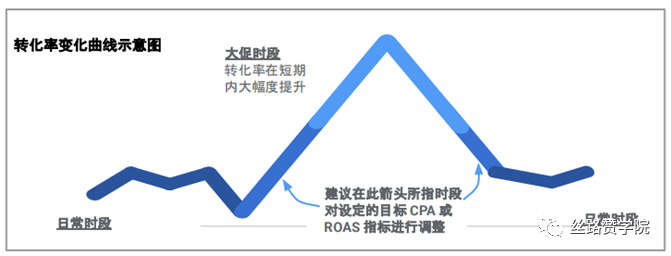
FAQ - Policy selection.
5. How do I choose between "Maximize conversions" and "Target cost per conversion"?
What they all have in common is that they are aimed at getting more conversions.
❏ If you have a clear goal for cost-per-conversion, select the Target Cost-per-conversion bid.
❏ If you don't have a clear goal for cost-per-conversion, but want to make effective use of your existing budget, select the Maximize conversions bid. For example, if you have a new category or new market that you need to start, but you're not sure what the CPA really is like, you can start with "Maximize conversions."
❏ If your series is prompted with "Budget Limited," it is recommended to use "Maximize conversions" or.
after you raise your budget, use Target Cost per Conversion.
6. Why is it more recommended to "Target Cost per Conversion (tCPA)" than "Smart Pay-per-Click (eCPC)"?
When choosing the right bid strategy, the most critical element is that it must be consistent with your core business objectives. Smart click-through and the common goal of target cost-per-conversion are to get more conversions for you. The data shows that smart point hit pay can increase conversions by 7% compared to a typical manual bid in a similar average CPA, while the target cost per conversion more fully exploits the advantages of Smart Bid, which in similar cases increases the number of conversions by 31%.
Therefore, if your core business goal is to get more orders and sales, it is recommended that you make the target cost-per-conversion bid your first choice.
7. Is it recommended to use eCPC to accumulate data at the beginning of your campaign?
For the new series, the initial phase does not have to use eCPC to accumulate data.Starting in 2019, for all new series and accounts, the Target Cost-per-Conversion (tCPA) and "As many conversions as possible" bid methods no longer require up-front historical data and can be launched directly in the initial phase.Fully automated "target-per-conversion cost" (tCPA) and "as many conversions as possible" are better than CPC's.Such as.
8. If there are not too many conversions per series, can I also use smart bidding?
Thanks to the implementation of the cold boot function, smart bids can also be used in small series of data, and the system uses a large number of signals from other series in the account to adjust the bids in real time. So for a small series, it's a good thing to start smart bidding!
Another option is if you have 3 very small campaigns A, B, c, which have the same target cost per conversion, which is $20, then you can.To set up and apply the "combination bid strategy" to optimize management for these three small series.
FAQ - Data performance Ideal?
9. Tried smart bidding, but why isn't it good enough?
First, it is recommended that you select the right data to measure the effectiveness of smart bids.
❏ "Indicator Selection"
Different smart bid strategies have different metrics.
❏ "maximize conversions" and the measure is the number of conversions;
❏ "target cost per conversion" to measure the number of conversions and cost per conversion can achieve the target;
❏ "Target Ad Expenditure Return", which measures total conversion value and average return on expenditure. Evaluate smart bids and recommend that you ensure that the metricyou is measuring is an optimization metric for that bid strategy.
❏ Time selection
Smart bids are based on data accumulation and machine learning, so you need a learning period, and it is recommended that you set aside at least 2 weeks for machine learning.You can also view status in your campaign or portfolio bid strategy report, and if you say "Learning" means that the learning period is not over, it's not appropriate for a data evaluation.
❏ Because most ad clicks don't immediately result in conversions, it takes a certain amount of time from the time the click occurs to the completion of the conversion, which is "conversion time." It is recommended that you exclude the "conversion time-consuming" period. For example: You started the Smart Bid Test on March 1, and the vast majority of conversions in your business model are completed within 7 days of the click (conversion takes 7 days). If you are evaluating on April 15, please exclude the 2-week learning period after opening and the 7-day conversion time, i.e. take the data from March 15 to April 8 for evaluation.
❏ we recommend that you also exclude the 30-day conversion window to ensure that all conversion data has been returned to your account.
In the same case, you wait until around May 7 to evaluate and select the data analysis from March 15th to April 8th with a smaller error.
If you have selected the right data and time period for an assessment, or you see a less-than-expected effect, there are possible reasons for:
❏ The target is too strict.
Take, for example, "Target Cost-per-conversion" and "Target Ad Spend Return" if you set up a market-competitive environment.
Low tCPA, or too high tROAS, is more difficult to achieve through learning analysis, and campaign traffic may fluctuate, such as decreasing traffic.
❏ Suggestions.When you set a bid, you'll be advised based on historical data and other information, and you can refer to this system suggestion to set a more reasonable goal. As the data grows, you can also make small range adjustments to the original bid with more ground.
❏ "Budget constraints for campaigns"
For CPA and ROAS bids, the series budget does not indicate "limited" or the system algorithm will not be fully optimized.
Suggestions.:Boost your campaign budget or reallocate budgets between series to make sure that a series that uses smart bids is well-optimized on a budget, or choose the "Maximize conversions" bid.
❏ Make frequent changes to your campaigns
Smart bids rely on machine learning, and drastic changes often lead the system back into the learning phase.
Suggestions.: When you first enable a new policy, try not to make changes to your campaign, including keywords, bids, budgets, and other settings. At the end of the learning period, if you do want to make adjustments to the series, you can choose to do so several times in small ways. How should I set reasonable goals?
10. With regard to the "Target Ad Expenditure Rate" (tROAS), how should reasonable targets be set?
In the initial phase, it is recommended that you set an optimization goal for the average conversion value/spend data over the past 30 days, or a goal that is slightly below this data.
You can find the conversion value/spend space in your account. If you want to set a target slightly above this data, we recommend that you raise the percentage no more than 10%. This is because setting too high a target in the initial phase can lead to large fluctuations in data such as presentation and clicks.
11. When the "Goal Per Conversion Fee" is turned on, why is the actual CPA inconsistent with the goal set?
First, make sure that the bid strategy is set correctly, that the goals are well-targeted, that there have been no significant changes in the near future, and that best practices are followed. If the bid strategy is new or has been changed recently, please give the system at least 2 weeks to adjust and stabilize.
The Target Cost per conversion strategy does not guarantee that the cost of each conversion is exactly the same as the goal you set, and it is normal for the actual CPA to float around the target CPA by a small margin, typically no more than 15% to 30%.
This is because a variety of factors, such as conversion data, competitive environments, and so on, may be slightly higher or below the target, while the Target Cost-per-Conversion bid pulls it back to the target level when the actual CPA is higher, while the actual CPA is adjusted to the opposite level, bringing the CPA closer to your goal. It is recommended that you look at longer-term data and that the actual CPA will be closer to your goal.
According to the above share, I believe that everyone has a further understanding of smart advertising. Little partners who haven't used it yet can act!

Original contribution: Beijing success Yi Li Caiyun.
Audio and video recording: SilkRuzan College Xiaowei.
Reprint please indicate the source.

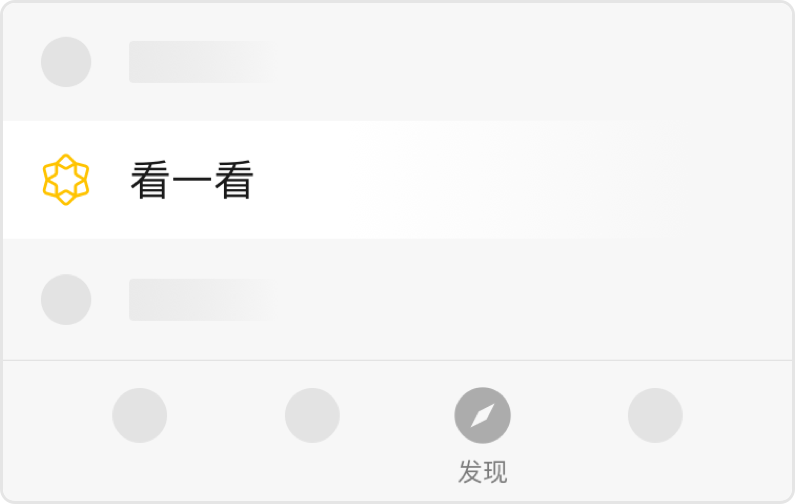
Send to the author.